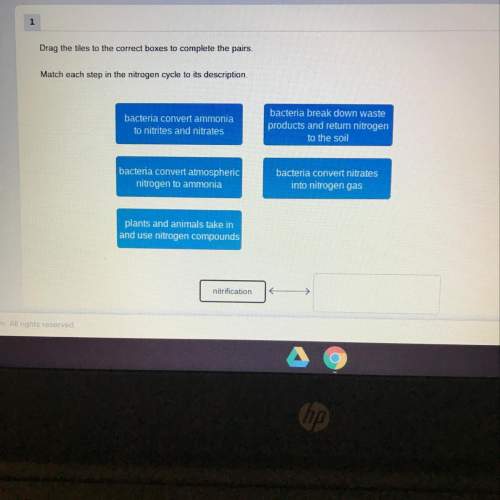
Biology, 26.06.2019 03:00 vanessabeausoleil
Reptiles, amphibians, and fish are all cold-blooded animals. their body temperatures are determined by their surroundings. how does a cold-blooded animal’s ability to digest food change in colder temperatures? a it digests food at the same rate regardless of the temperature. b it digests food more quickly at lower temperatures. c , correct answer it digests food more slowly at lower temperatures.

Answers: 2


Other questions on the subject: Biology

Biology, 21.06.2019 20:50, Daddysgirl2019
Which type of bond forms between water moleculesstrong bondhydrogen bondcovalent bondpolar bond
Answers: 1

Biology, 22.06.2019 03:30, amp1955
Students in biology are studying the macromolecules of life. they used a calorimeter to determine the calories in various types of food. once the lab was completed, the students ate the left over food samples. monica commented that in just 6 or 7 "chews" of the saltine, it was gone; nothing but a sticky paste in her mouth. elaborate on what happened chemically while chewing the saltine. include the macromolecules present.
Answers: 1

Biology, 22.06.2019 16:30, dinarussell74
Energy stored in the bonds that hold together the atoms and molecules of all substances is called a. kinetic energy. b. electrical energy. c. mechanical energy. d. chemical energy.
Answers: 1
You know the right answer?
Reptiles, amphibians, and fish are all cold-blooded animals. their body temperatures are determined...
Questions in other subjects:


Mathematics, 13.09.2021 09:50

Mathematics, 13.09.2021 09:50






Medicine, 13.09.2021 09:50

Computers and Technology, 13.09.2021 09:50




